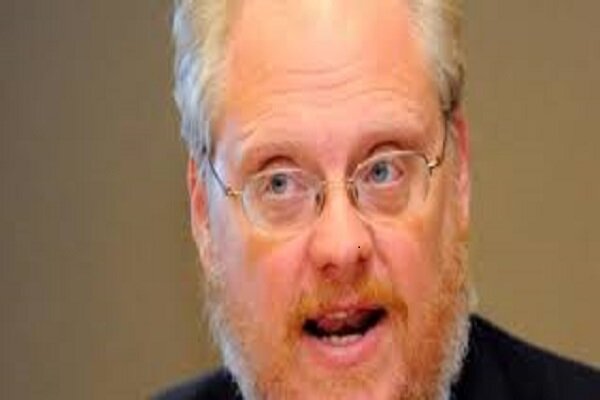Vast majority of terror victims are Muslims: scholar

TEHRAN – Noting that most of the people who are victims of terrorism are Muslims, a British professor of communication says that Islamophobic rhetoric makes reconciliation and peace harder to attain.
"The vast majority of victims of these acts of terror have themselves been also Muslims," Nicholas Cull says.
"Responding to terror with exaggerated Islamophobic rhetoric rather than solid police action plays into the hands of the extremists in the Middle East (West Asia) and makes reconciliation and peace harder to attain," the scholar in the USC Annenberg School for Communication tells the Tehran Times.
This is the text of the interview:
Q: After Trump came to power in 2016, it seems that the threat of far-right ideas returned to European countries. How do you analyze this phenomenon?
A: My feeling is that you have this the wrong way round. Trump came to power because of the same impulse to return to extremes that pushed Europe to the right. I see this as a function of both the economic downturn of 2008 and the destabilization caused by the emergence of widespread social media, a mechanism that amplified the confirmation of existing ideas, privileged extremes, and promoted conspiracies. In a time of instability, people seek certainties either in a vision of the future or in the idealization of the part. The rhetoric of the far-right focused on an ideal past that they could also present as disrupted by an outside influence. In many cases, the rhetoric stressed a victim narrative and the extent to which a people had suffered. Trump promised to make America great again and rescue the U.S. from China and migrants; Brexit promised to allow the U.K. to 'take back control' and rescue British people from Brussels. The same pattern is repeated with different visions by leaders promising to make Turkey, Hungary, Poland, the Philippines, China, and a dozen other places' great again.'
“I think that there is a need to talk about all extremes in religion and politics.”
Q: What are the main reasons for opposition to immigrants or religious minorities by right-wing parties?
A: Migration to Europe has increased in recent years, and the overlap of an anti-reaction to this migration with political difficulties in the Middle East (West Asia) gave the far-right an ideal scapegoat in Muslims. It is true that there have been acts of terror perpetrated by extremist people professing the Muslim faith. The tragedy is that the vast majority of victims of these acts of terror have themselves been also Muslims. Responding to terror with exaggerated Islamophobic rhetoric rather than solid police action plays into the hands of the extremists in the Middle East (West Asia) and makes reconciliation and peace harder to attain.
Q: What does push people to turn to racist groups or parties in Europe?
A: I am a great believer in the power of economics to drive extremes and the observation of the Roman poet Ovid that 'in prosperity no altars smoke.' I suspect that as and when prosperity returns, the extremes will recede. Of course, that is the moment to work for the real reconciliation that can be a hedge against a return to extremes.
Q: How can the world confront anti-Islamism?
A: I think that there is a need to talk about all extremes in religion and politics. We need to acknowledge the way in which demonization of enemies is used to build political capital by leaders who have a vested interest in perpetuating conflict. The most hopeful thing is when people can connect with others like themselves but in other countries and communities. This is the value of cultural and educational exchanges. I see great value in events like the Arabesque season at the Kennedy Center in Washington DC or the Iranian art show at the British Museum, which shows the region's beauty and heritage and disrupts the demonization.
“Migration to Europe has increased in recent years, and the overlap of an anti-reaction to this migration with political difficulties in the Middle East (West Asia) gave the far-right an ideal scapegoat in Muslims.”
Q: How do you see the future of Muslims in Britain? What is the current status of Muslims in the country?
A: I know that the headlines are always negative at the moment, but there are also positive indicators of change. When I was a boy, it was impossible to imagine some of the things we have today, like Muslim members of parliament, Muslim ambassadors, Muslim lawyers, Muslim entertainers, and sportsmen and women. What would Uncle Napoleon say? This is not a British trick but a sign of real change and of hope for the future. A better, more inclusive society and a more tolerant wider-world will require effort and patience. The first step must be to listen and not to assume we know how the other side feels.
Leave a Comment